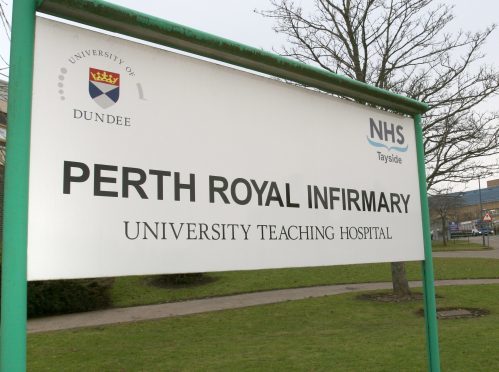Health chiefs are fighting to preserve safe healthcare in Perth and Kinross in the face of a major shortage of nurses.
The health sector is struggling to fill thousands of posts nationally, but the situation locally has now reached crisis point.
Perth Royal Infirmary has been forced to merge wards and cancel surgical procedures due to a lack of staff.
NHS Tayside has introduced a series of temporary measures in an effort to minimise disruption to patients while it bids to hire new nurses.
The revelation comes on the back of last week’s publication of official figures which laid bare a staffing crisis at the health board – and a drop in the number of midwives and nurses in particular.
Nursing shortages are a problem affecting hospitals across Scotland, but Mid-Scotland and Fife MSP Murdo Fraser said it was “particularly concerning that PRI is now operating under contingency measures”.
He said: “I would call on healthcare leaders at NHS Tayside and the Scottish Government to do all within their powers to ensure that new recruits can be found and that temporary contingency measures come to a close as soon as possible.”
NHS Tayside’s Medical Director for the Operational Unit, Dr Alan Cook, said “interim contingency measures” had first been put into operation at PRI on March 6 due to what he described as “ongoing nurse staffing issues”.
He said: “Despite numerous efforts to recruit nursing staff, including five rounds of advertising vacancies, there remains a shortage of nurses in the medical wards at PRI, especially in the general medical Ward 3.
“To ensure we continue to provide a safe level of care for our patients, we made the decision to temporarily realign a small number of medical and surgical beds on the PRI site.
“As part of this plan, 12 medical beds have been transferred from Wards 3 and 6 and have temporarily become designated medical beds in wards 1 and 7 which are surgical wards.
“Several options were considered in response to this nursing staffing issue, however, this was the option which medical and surgical staff agreed would be implemented.
“This measure will allow us to maintain the number of medical beds available on the PRI site for patients being admitted into our hospitals from the community, many of whom are acutely ill.”
DR Cook said the plan had been developed by clinicians, nursing, partnership and health and social care colleagues to ensure they can “continue to deliver high-quality, person-centred, safe and effective care at PRI”.
He praised staff for their response to the difficulties being experienced at the hospital.
“It is clear that nursing and medical staff have worked closely together with partnership colleagues and managers and, collectively, they have ensured that the plans which are now in place put patients first,” he said.
“However, we acknowledge that there has been an impact on surgical and orthopaedic activity, and work continues with the multidisciplinary teams involved to minimise the extent of this.
“We understand that this decision may cause inconvenience to patients and their families but we cannot compromise the safety of our patients and we simply do not have the right level of nursing staff cover at this time.
“The interim moves are to ensure that the nurses, consultants and clinical teams we have are able to care for patients in the safest and most appropriate environments.”
Extensive short-term efforts are continuing to fill vacant nursing posts at PRI.
Figures published last week by ISD Scotland revealed that the number of NHS workers has dipped locally over the past year.
Tayside had 171 whole-time equivalent nursing vacancies, while Fife had a further 87.4 posts unfilled.
At the time, an NHS Tayside spokeswoman said “small fluctuations in staff numbers” were to be expected as the NHS redesigns its services.
